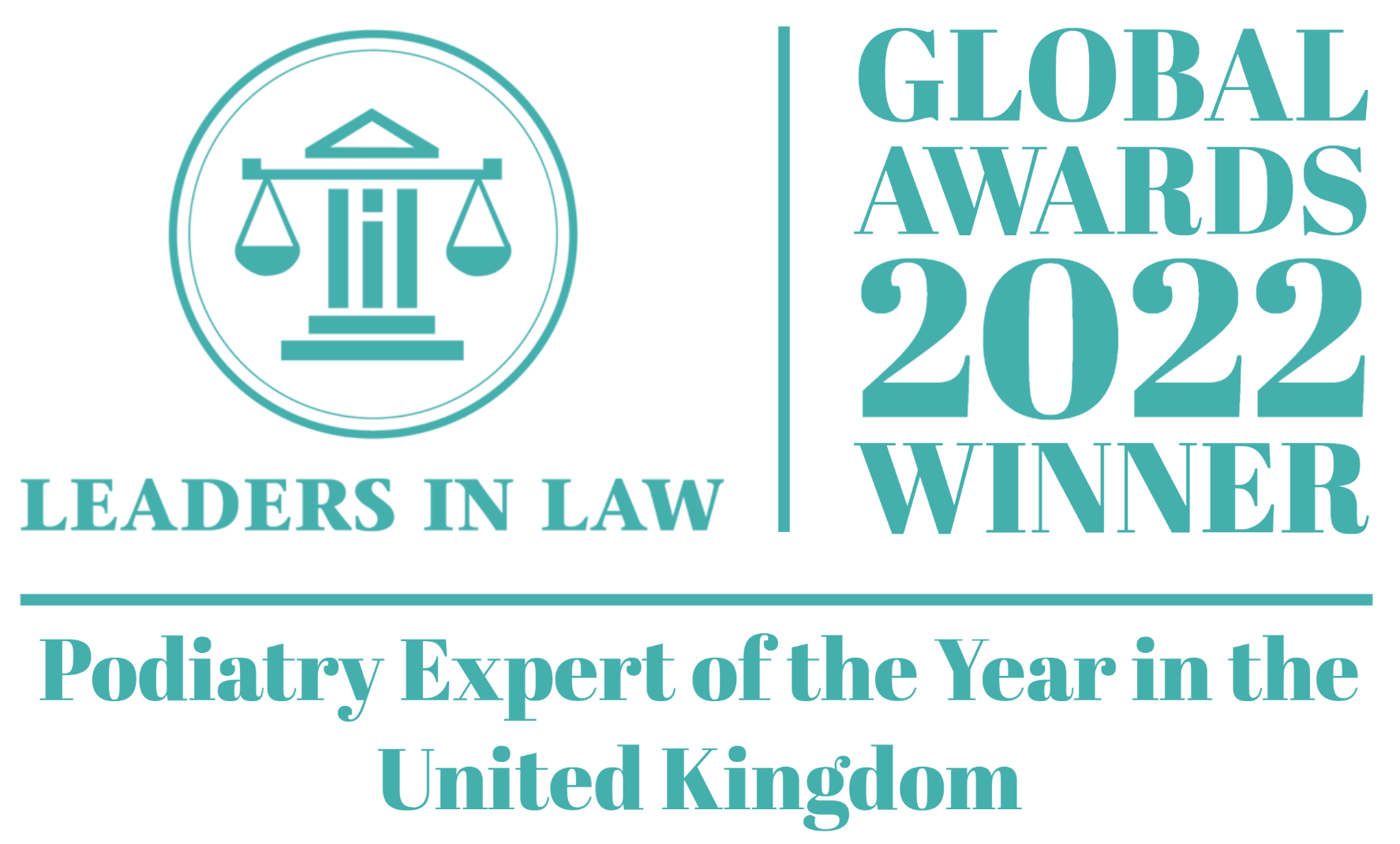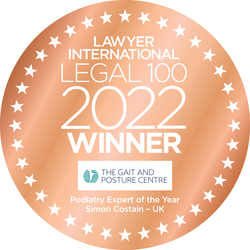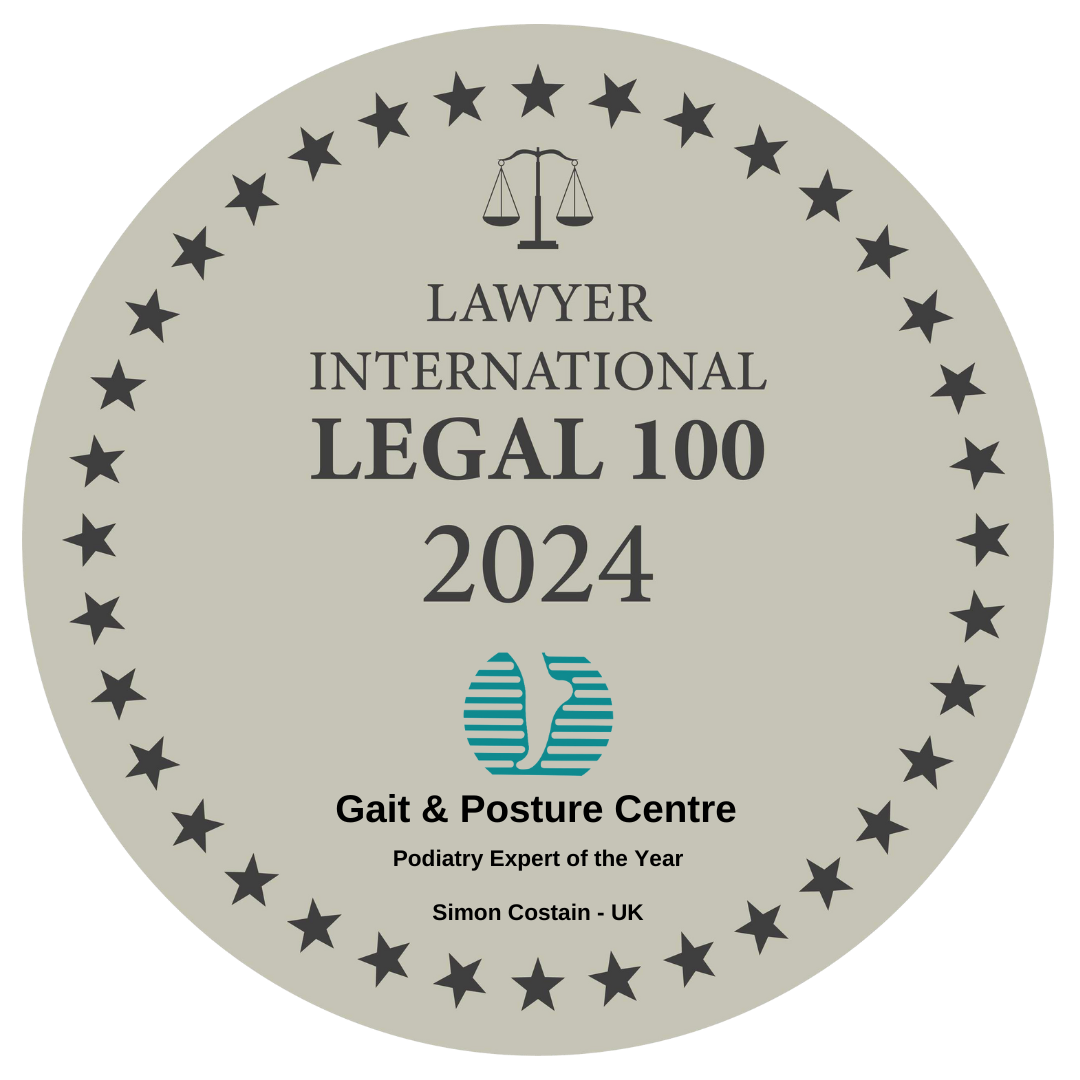Making an Appointment
-
How do I book an appointment
Either call the clinic on 0207 636 4465 or email us at clinic@gaitandposture.com and we will be pleased to book an appointment.
-
What are the opening hours?
We are currently open Tuesday, Wednesday & Thursday, with the first appointment at 8:30am and the last at 5:30pm.
-
Do I need a referral?
No, you do not need a referral, we welcome patients booking with us directly or if referred by another health professional.
-
How long is an appointment?
- Podiatry appointments are generally 30 minutes in duration.
- Assessments such as biomechanical, diabetic, or vascular vary between 30 to 45 minutes, and minor surgery around 45 minutes to an hour.
- For osteopathy and physiotherapy, the first appointment will take 1 hour and follow up sessions are usually 45 minutes.
-
What is the cancellation policy?
We ask for 24 notice to cancel an appointment or a cancellation charge may be incurred.
-
Do you accept Private Health Insurance?
- Please check with your health insurance company to clarify whether they cover podiatry, physiotherapy or osteopathic services.
- In most cases a GP or Consultant referral will be required.
- Most insurance companies do not cover the fees for casts or orthoses.
- All charges are your responsibility and in most cases we ask that patients settle their accounts at the time of the consultation. If you are going to claim on your insurance you will need to send your receipted invoice to your insurance company for any reimbursal.
Podiatry
-
Who benefits from Podiatry?
- It is a common misconception that it is only elderly people who need treatment of their feet – in fact, podiatrists treat people of all ages and all abilities – small children with “growing pains”, people struggling to walk, diabetics, athletes and those who want to avoid surgery and are looking for a less invasive approach.
- If you have one or preferably two feet, you most likely could benefit from Podiatry help.
-
Why is it important to see a podiatrist if I have diabetes?
Diabetes can cause serious complications. More than 65,000 people a year need to have a foot amputated because of diabetes. Podiatrists are specifically trained to assess the nerve and circulatory damage in your feet caused by diabetes, identify your specific foot health risks, and help you come up with a treatment and prevention plan. Every diabetic patient should be examined by an experienced Podiatrist annually.
-
What can I expect on my first visit to a Podiatrist?
- At your first appointment, the podiatrist will carry out an initial assessment, taking a detailed history of your condition, along with any relevant past medical history and foot and footwear problems.
- A physical assessment of the foot and lower limb will then be done and where appropriate we will look at you walking or complete a computerised gait analysis.
- We will then discuss with you an appropriate treatment plan and answer any questions you may have.
-
How many podiatry sessions will I need?
This will vary dependent upon the condition being treated, but many times significant improvement will be seen in 2-3 appointments.
-
What conditions do podiatrists treat?
Podiatrists can give specialist advice on the prevention, management and treatment of foot, leg and lower back pain and injuries.
Conditions that podiatrists can help manage include:
- Sports injuries
- Arthritis
- Morton’s neuroma
- Bunions and hammertoes
- Growing pains
- Diabetes
- Sprains and general pain
- Ingrowing toenails, verruca and corns
-
At what age can I bring my child to see a podiatrist?
Our Podiatrists are very experienced at examining children of all ages and regularly receive referrals from Consultant Paediatricians and GP’s to help resolve growing pains in children’s feet and legs, as well as helping address routine foot problems.
-
What does a podiatrist do?
Podiatrists are healthcare professionals who have been trained to diagnose and treat abnormal conditions of the feet and lower limbs. They also prevent and correct deformity, keep people mobile and active, relieve pain and treat infections. Our practice specialises in gait and postural problems and is a fully Accredited Podiatry practice.
-
Do I have to remove my clothes for a Podiatry appointment?
If your podiatry appointment includes a biomechanical assessment or gait analysis then please bring shorts and the footwear that you normally wear.
For other appointment types we will need to be able to access your feet and lower legs, but you will remain clothed.
-
What is a Podiatric Surgeon?
- Some Podiatrists further their basic training by specialising in Foot & Ankle Bone & Joint Surgery. This follows a Podiatric Medicine BSc University degree, requires up to 8 years of additional training and results in the award of a Fellowship.
- Simon Costain is a Podiatric Surgeon who held a Consultant Podiatry post at Northwick Park Hospital and currently holds a Podiatric surgical Fellowship.
Gait Analysis
-
What are Biomechanical Assessments?
Biomechanics is the static and dynamic study of the lower limbs in relation to gait and human movement. Podiatrists observe patients for any alterations in the optimum sequence of events occurring between the foot, the lower limb, and the rest of the body during the various phases of gait, whether that be walking, running, cycling and skiing analysis. Deviations from the norm, can lead to foot, ankle, knees, hips, and back pain.
Sports Injuries
-
What types of injury can you help with?
We can help with most injuries to the foot, ankle, knee, leg and offer much help to patients who suffer some low back pains by optimising foot and leg function. Some of the most common include:
- Metatarsalgia.
- Plantar fasciitis.
- Ankle sprains.
- Achilles and heel injuries.
- Toe arthritis pain.
- Calf strain and pains.
- Shin splints.
- Stress fractures.
- Knee pain.
- Trochanteric bursitis and hip pain.
- Low and some upper back pains.
-
Can podiatry help improve sports performance?
Athletes often visit our podiatrists in order to improve their performance and reduce injury predilection. Even those who don’t experience pain or aches while running can benefit because podiatrists can make sure that their legs, knees, feet and ankles are performing at their best. Our Podiatrists have an enormous range of experience with amateur and professional sports men and women, from beginners up to elite Olympic level athletes.
Paediatric Assessments
-
At what age can I bring my child to see a podiatrist?
Our Podiatrists are very experienced at examining children of all ages and regularly receive referrals from Consultant Paediatricians and GP’s to help resolve growing pains in children’s feet and legs, as well as helping address routine foot problems.
Xray
-
Do you have X-ray facilities within the practice?
Yes, we can take digital X-rays as part of your appointment with the results being immediately available. The X-rays can also be downloaded onto a CD for you to take with you. There is an additional cost for X-rays.
Orthotics
-
What are Orthotics?
- Orthotics, also known as orthoses, shoe inserts. or foot supports, are medical devices designed to reduce or stop pain and to improve the biomechanical function and efficiency of the foot, leg, and back, to help you standing, walking, and running. Orthotics involve a specific prescription to compensate for a specific physical or functional abnormality.
-
Can I have orthotics fitted into smart shoes?
We have a range of orthotics for all types of shoes, from smart ladies heels and mens dress shoes through to trainers and can incorporate orthotics into either off the shelf or 3d printed sandals.
-
How long do orthotics last, and are they guaranteed?
The Centre only uses top class laboratories to manufacture orthoses so we would expect them to last for a minimum of 5 years, however refurbishments may be necessary.
Toenail Treatment
-
How do you treat Fungal Nail infections?
- A fungal nail infection occurs when a fungus attacks the nail itself, or the skin under the nail, called the nail bed.
- Fungal nail infections are not usually painful at first, but if left untreated the infection may spread and cause complications, particularly if you have diabetes or a weakened immune system.
- If your toenails have become thick, discoloured or uncomfortable, we can treat this by thinning the nail or by removing it completely and painlessly with or without a local anaesthetic.
- Fungal nail infections can recur.
FMT
-
What is FMT?
Foot Mobilisation Therapy (FMT) is a gentle hands-on manual manipulation course of therapy treatment that works naturally and holistically with your body. It stimulates your body’s ability to repair and restore itself. This helps to reduce pain and inflammation while restoring foot mobility, function, and posture. This is provided by experienced Podiatrists or our in-house Osteopath.
-
What does a podiatrist do?
Podiatrists are healthcare professionals who have been trained to diagnose and treat abnormal conditions of the feet and lower limbs. They also prevent and correct deformity, keep people mobile and active, relieve pain and treat infections. Our practice specialises in gait and postural problems and is a fully Accredited Podiatry practice.
Diabetic Footcare
-
Why is it important to see a podiatrist if I have diabetes?
Diabetes can cause serious complications. More than 65,000 people a year need to have a foot amputated because of diabetes. Podiatrists are specifically trained to assess the nerve and circulatory damage in your feet caused by diabetes, identify your specific foot health risks, and help you come up with a treatment and prevention plan. Every diabetic patient should be examined by an experienced Podiatrist annually.
-
What conditions do podiatrists treat?
Podiatrists can give specialist advice on the prevention, management and treatment of foot, leg and lower back pain and injuries.
Conditions that podiatrists can help manage include:
- Sports injuries
- Arthritis
- Morton’s neuroma
- Bunions and hammertoes
- Growing pains
- Diabetes
- Sprains and general pain
- Ingrowing toenails, verruca and corns
-
What does a podiatrist do?
Podiatrists are healthcare professionals who have been trained to diagnose and treat abnormal conditions of the feet and lower limbs. They also prevent and correct deformity, keep people mobile and active, relieve pain and treat infections. Our practice specialises in gait and postural problems and is a fully Accredited Podiatry practice.
Routine Footcare
-
How do you treat a Verruca?
- Verrucae are viral warts and are caused by the Human Papilloma virus (HPV).
- They are contagious and precaution should be taken when sharing bathrooms or swimming pools.
- Many verrucae may go away on their own without treatment within 18 months, however If the verucca is causing pain or does not go away of its own accord we can treat it using a number of different methods. Being viruses, there are no guaranteed treatment methods and verrucae can recur or not be resolved even with the best treatments available.
-
How do you treat Fungal Nail infections?
- A fungal nail infection occurs when a fungus attacks the nail itself, or the skin under the nail, called the nail bed.
- Fungal nail infections are not usually painful at first, but if left untreated the infection may spread and cause complications, particularly if you have diabetes or a weakened immune system.
- If your toenails have become thick, discoloured or uncomfortable, we can treat this by thinning the nail or by removing it completely and painlessly with or without a local anaesthetic.
- Fungal nail infections can recur.
-
What conditions do podiatrists treat?
Podiatrists can give specialist advice on the prevention, management and treatment of foot, leg and lower back pain and injuries.
Conditions that podiatrists can help manage include:
- Sports injuries
- Arthritis
- Morton’s neuroma
- Bunions and hammertoes
- Growing pains
- Diabetes
- Sprains and general pain
- Ingrowing toenails, verruca and corns
Ongoing Management
-
What is FMT?
Foot Mobilisation Therapy (FMT) is a gentle hands-on manual manipulation course of therapy treatment that works naturally and holistically with your body. It stimulates your body’s ability to repair and restore itself. This helps to reduce pain and inflammation while restoring foot mobility, function, and posture. This is provided by experienced Podiatrists or our in-house Osteopath.
-
What does a podiatrist do?
Podiatrists are healthcare professionals who have been trained to diagnose and treat abnormal conditions of the feet and lower limbs. They also prevent and correct deformity, keep people mobile and active, relieve pain and treat infections. Our practice specialises in gait and postural problems and is a fully Accredited Podiatry practice.
Medico Legal
-
Do you work for both the claimant and the defendant?
We take instructions from solicitors for either defendant or claimant.
-
How do we engage you for a medico-legal claim?
Ask the solicitor representing you to contact us at clinic@gaitandposture.com or by calling us on 0207 636 4465.
Osteopathy
-
Do Osteopaths “crack” joints?
Yes, Osteopaths use high velocity thrusts to mobilise joints when needed. However, there are always numerous ways of achieving the desired result and patients that are uncomfortable with such techniques can request for them to be avoided.
-
Do I have to remove my clothes for an Osteopathy appointment?
During the physical examination it is advisable to undress to your underwear. However, if you are uncomfortable removing clothes, please feel free to make it known and it can be avoided.
-
Can I have Osteopathic treatment when pregnant?
You can still receive Osteopathic care when pregnant, however there are considerations on which techniques are used during certain stages of pregnancy. Please inform the Osteopath if you are pregnant and the stage of pregnancy.
-
How many osteopathy appointments will I need?
It is normal to experience significant improvement within 3 sessions, however patients are advised to allow for up to 6 sessions.
It is common to continue your treatment after discharge as a form of maintenance and patients are often advised to see the osteopath every 3 months especially if they are physically very active, recovering or rehabilitating from injury, or have been managing chronic pain for a number of years.
-
Is Osteopathic treatment painful?
Osteopathic treatment will not be painful at all. Whilst we may address areas of tenderness and pain, the techniques used will be relaxing. Some patients experience a reaction to treatment whereby the site and character of their existing pain becomes more specific a day later, however this is temporary and is often the result of increased blood flow and movement, it is a positive sign and is easily managed.
-
What is the difference between Chiropractic & Osteopathic treatment?
- Aside from the history and philosophies of both therapies, there are many similarities, and practitioners will approach patient care using similar techniques. Chiropractic treatment often focuses on spine alignment and relates postural importance with good function. Osteopaths are also ‘aligned’ to that principle, but view the patient holistically and incorporate their wellbeing, visceral function and general systems in evaluation and diagnosis. For example, it is not uncommon for an Osteopath to link lower back pain with foot and ankle function, or with poor upper back mechanics.
- During treatment an Osteopath will recruit many techniques, including soft tissue massage, high velocity thrusts and other joint manipulation techniques to bring about a functional change.
For more information about the Centre and to book an appointment please contact us










